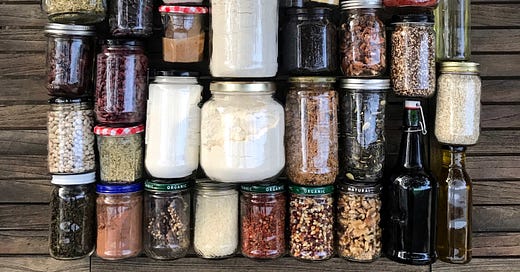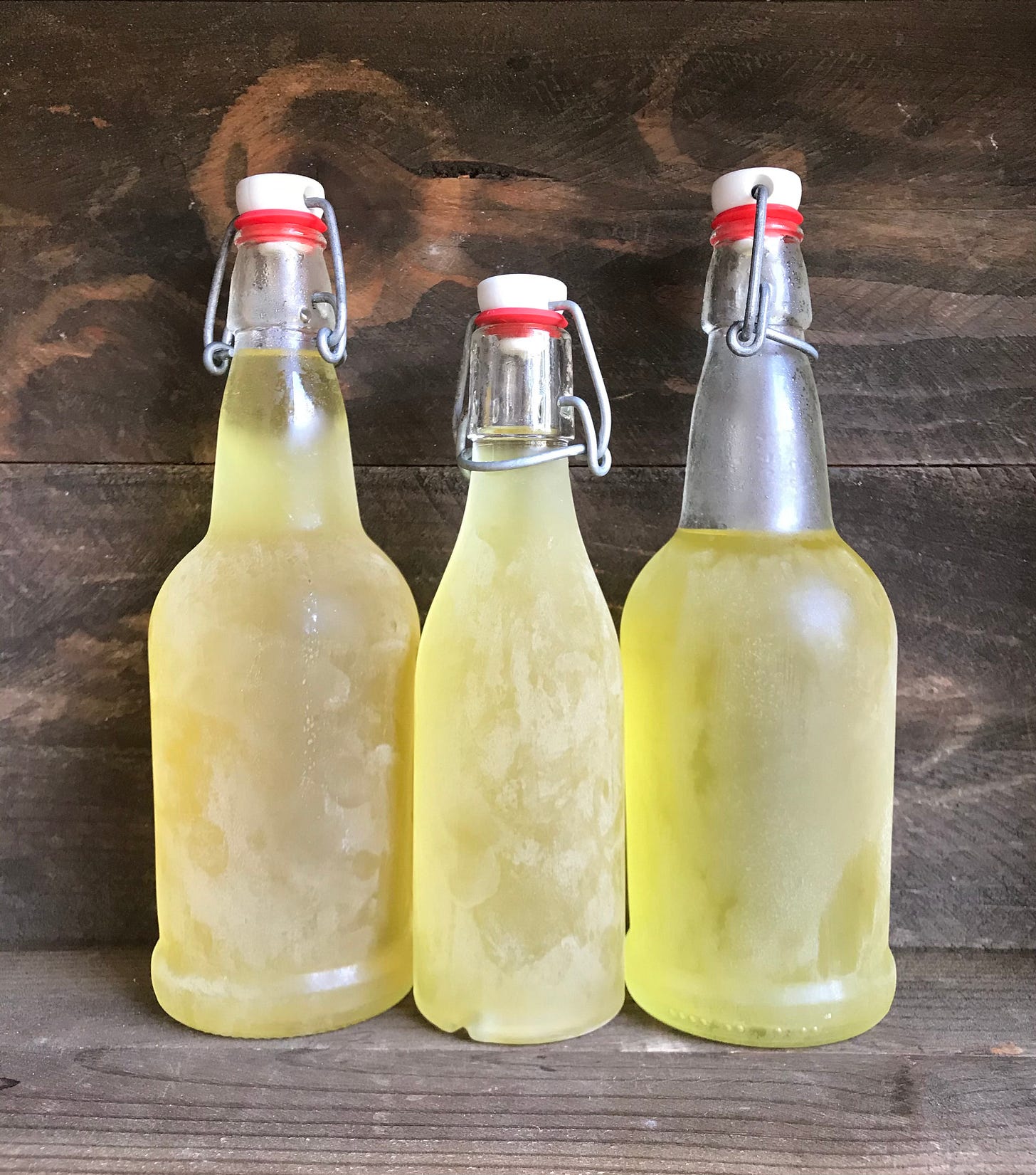Does Cutting Plastic Matter as the World Melts and Burns?
Four actions to address the plastic pollution crisis
From the heat dome, to systemic racism, to climate fires, to a historic drought and on and on and on, plastic reduction may seem like the least of our problems. But the plastic pollution crisis is about more than the plastic waste itself (it is about that too).
It's about the climate crisis. Plastic is made of fossil fuel. It exacerbates climate change along every step of its production, from extraction of its raw materials, to transporting those materials, to refining them, to manufacturing and disposing the plastic after a short use, upon which it releases greenhouse gases as it degrades.
It's about supporting the BIPOC community. Polluting fossil fuel refineries and petrochemical plastic plants are located predominantly in BIPOC or low-income communities.
It’s about protesting Big Oil. In June 2021, Greenpeace UK released an undercover video of Keith McCoy, senior director of federal relations at ExxonMobil, admitting (bragging in fact) that the oil giant targeted US politicians in an attempt to water down meaningful action on climate. He also discussed the company’s strategy regarding the plastic pollution crisis. (I’ve cleaned up some of his umms and ahhs below.)
You want to get smart on it. Right? Because you know it's coming. It's just like on climate change. Right? So when climate change came up—well, it's here. But when it started, you started to have conversations to say, "Well, you can't completely change the electric grid from coal and gas into wind. And here's why." It's the same conversation: "You can't ban plastics, because here's why." Or, "You can't recycle, or legislate 100% recycling, because, here's why. It's just not technologically feasible." So we're doing the research, we're looking at our markets, we're looking at the chemistry. And we're hoping to be able to come up with, if not solutions, at least reasons and talking points to have with members of Congress. And so that's part of everything that's happening with individual companies, with our trade association, American Chemistry Council. American Chemistry Council is at the state level, at the federal level, they are international. So they have a really good viewpoint of the chemical landscape. And we're a part of all of those conversations there, because we would prefer to model legislation that the American Chemistry Council put forth, as opposed to, say, a super progressive member of Congress that puts forth a comprehensive piece of plastics legislation. We prefer it comes from us, rather, from them.
It’s about industrial chemicals. In 2018, the American Society of Pediatrics warned that certain chemicals in food packaging may harm children’s health. These include BPA, phthalates, perchlorate and perfluoroalkyl chemicals (PFAS), otherwise known as forever chemicals because they persist in the environment, well, forever. This recent article from The Guardian reveals that the problem of PFAS contaminating plastic packaging is worse than previously thought. (Learn more about PFAS here.)
It’s about junk food. Indestructible plastic makes it easier for corporations like Nestlé to ship their products around the globe and infiltrate developing nations.
It’s about addiction to convenience and a brutal economic system that makes convenience food the only choice for a large swath of the population.
It’s about off-the-rails consumerism. Single-use plastic fuels throwaway and convenience culture.
The good news
Chile has banned single-use plastics. New Zealand announced a similar ban. Canada has declared plastic toxic. A global treaty to address the plastic waste crisis is gaining momentum. Similar stories appear in the news almost daily.
Changes like these come from the bottom up. Movements like Plastic Free July have inspired hundreds of millions of people worldwide to both make changes and demand change.
4 things we can do about the plastic pollution crisis this month
1. Take the Plastic Free July challenge
If you don’t know where to even begin when embarking on a month without plastic, start by cutting the “Top Four” single-use plastic items—widespread types of plastics that have quite simple and painless solutions. (Take the Plastic Free July challenge here.)
Plastic bags
In the US, people use 14,000,000,000 single-use plastic bags per year. If we can adjust to taking our cloth shopping bags to the grocery store—and millions and millions have—we can adjust to using cloth produce bags as well.
You can buy cloth produce bags at health food co-ops, eco-friendly shops and online. You can also sew very simple produce bags if you prefer. Stash your produce bags in your shopping bags so you’ll have them when you need them.
Water bottles
In the US, we consume 1,500 plastic water bottles every second for something that most of us can get free from our taps. Meanwhile Nestlé, during our current extreme drought in California, continues to steal millions of gallons of our water to sell in single-use plastic bottles.
Needless to say, you can’t drink unsafe water. But clever marketing, not actual need, motivates millions and millions of Americans to buy bottled water. And according to Food & Water Watch, 64 percent of bottled water is merely filtered municipal tap water. Not only that, bottled water may contain up to twice as many microplastics as tap water.
Avoid the plastic waste by packing a reusable water bottle or mason jar. If you prefer to drink and cook with filtered water, install a water filtration system in your home.
Takeaway coffee cups
Thin plastic lines the inside of paper to-go cups to prevent coffee and tea from leaking all over you. To avoid these cups, bring a ceramic mug or thermos to your café. Or brew your caffeine fix at home, pour it in a thermos, take it to go and save a small fortune every month.
It’s not just a straw
Anti anti-plastic people like to claim that eliminating straws won’t make a difference. However, even the lowest estimate of just over 170,000,000 plastic straws used per day in the US is excessive. And besides, anyone refusing plastic straws won’t likely stop there. No doubt they will become more aware of plastic pollution and more active in addressing the problem. Straws, like each of these Top Four plastic items, are a gateway to reducing more plastic.
Of course, no one advocates taking away straws from anyone with disabilities who needs them. But for those of us who can drink without a straw, we can either lift the glass to our lips or buy reusable metal or glass straws.
2. Support organizations working on plastic pollution
In addition to Plastic Free July, the following groups work on the crisis, which relates to all our other environmental crises:
Join, donate time or money, follow on social media, retweet, share posts and so on.
3. Contact your representatives
If you live in the US, please urge your representatives to support the Break Free From Plastic Pollution Act. This groundbreaking legislation shifts responsibility for waste management onto the corporations that have created the plastic pollution crisis. It proposes a national beverage container refund program, sets minimum recycled content standards, phases out unrecyclable materials and prohibits the export of our plastic waste to developing countries.
Please go here to write, tweet and call your representatives.
4. Get involved
We can protest Big Oil and take individual action—in other words, march and chew plastic-free gum at the same time.
Last night, I attended 350 Silicon Valley's Climate Cocktail Hour and Letter Writing Meetup over Zoom. (Our group is affiliated with 350.org.) We spent an hour socializing while writing our state and federal reps and President Biden, urging them all to act on climate.
Senators and Representatives pay attention to letters and sending them during one of these meetings could not be easier. The 350 SV legislative team researches which bills to support. Our host provides links to find our reps and their contact info, along with letters regarding these bills. We copy the letters (and add our own words, if desired), paste them into the reps' contact forms, sign and hit send—simple and productive!
The next letter writing event takes place on Monday, August 9th, 7:30 pm to 8:30 pm Pacific Time. Join from anywhere in the US (not only Silicon Valley) here. I hope some of you can attend. I'll bring my homemade limoncello.
Want to cut even more plastic? My book will help you slash plastic and food waste in your kitchen.






I made the ginger beer from your blog after you spoke to us at NASA. I can’t believe how simple it was AND how great it tasted. I’m so glad I found you❤️
I enjoyed this post. Good ideas too for how to affect change. In my town of San Bruno I'm part of a group that hosts monthly community cleanups where we gather in a different part of town and pick up trash. That + I like to go on weekly walks around my neighborhood while picking up trash. Every time I collect a face mask or a plastic bottle from the shrubs, I feel like the bees and the birds thank me. Ha!